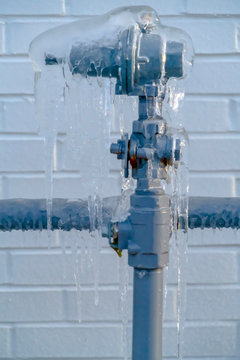Ways to Avoid Frozen Pipes in Winter: Pro Tips
Ways to Avoid Frozen Pipes in Winter: Pro Tips
Blog Article
Nearly everybody has their own conception on the subject of Preventing and dealing with frozen pipes.

Cold weather can ruin your plumbing, particularly by freezing pipelines. Below's exactly how to avoid it from taking place and what to do if it does.
Introduction
As temperatures decrease, the risk of icy pipes increases, possibly causing expensive fixings and water damages. Comprehending exactly how to stop icy pipes is crucial for house owners in chilly climates.
Prevention Tips
Shielding vulnerable pipes
Wrap pipelines in insulation sleeves or make use of warmth tape to protect them from freezing temperatures. Concentrate on pipes in unheated or exterior locations of the home.
Heating strategies
Maintain indoor areas adequately heated, particularly areas with pipes. Open up closet doors to permit cozy air to flow around pipes under sinks.
Exactly how to determine icy pipelines
Seek lowered water flow from faucets, unusual odors or noises from pipes, and visible frost on revealed pipelines.
Long-Term Solutions
Architectural adjustments
Consider rerouting pipes away from exterior wall surfaces or unheated areas. Include extra insulation to attic rooms, basements, and crawl spaces.
Updating insulation
Purchase premium insulation for pipelines, attic rooms, and walls. Appropriate insulation aids preserve regular temperatures and minimizes the danger of icy pipelines.
Protecting Outside Plumbing
Yard tubes and exterior faucets
Separate and drain yard hoses before winter season. Mount frost-proof spigots or cover outside taps with insulated caps.
Understanding Icy Pipelines
What causes pipelines to freeze?
Pipes ice up when revealed to temperatures listed below 32 ° F (0 ° C) for extended periods. As water inside the pipes ices up, it expands, taxing the pipeline wall surfaces and possibly causing them to burst.
Dangers and damages
Frozen pipes can cause water disruptions, home damages, and expensive repair services. Burst pipelines can flood homes and create substantial structural damages.
Indicators of Frozen Pipes
Determining icy pipes early can prevent them from rupturing.
What to Do If Your Pipelines Freeze
Immediate actions to take
If you think frozen pipelines, keep taps open to eliminate stress as the ice melts. Use a hairdryer or towels taken in warm water to thaw pipes gradually.
Final thought
Avoiding icy pipelines calls for positive procedures and fast feedbacks. By understanding the causes, signs, and safety nets, home owners can shield their pipes during cold weather.
5 Ways to Prevent Frozen Pipes
Drain Outdoor Faucets and Disconnect Hoses
First, close the shut-off valve that controls the flow of water in the pipe to your outdoor faucet. Then, head outside to disconnect and drain your hose and open the outdoor faucet to allow the water to completely drain out of the line. Turn off the faucet when done. Finally, head back to the shut-off valve and drain the remaining water inside the pipe into a bucket or container. Additionally, if you have a home irrigation system, you should consider hiring an expert to clear the system of water each year.
Insulate Pipes
One of the best and most cost-effective methods for preventing frozen water pipes is to wrap your pipes with insulation. This is especially important for areas in your home that aren’t exposed to heat, such as an attic. We suggest using foam sleeves, which can typically be found at your local hardware store.
Keep Heat Running at 65
Your pipes are located inside your walls, and the temperature there is much colder than the rest of the house. To prevent your pipes from freezing, The Insurance Information Institute suggests that you keep your home heated to at least 65 degrees, even when traveling. You may want to invest in smart devices that can keep an eye on the temperature in your home while you’re away.
Leave Water Dripping
Moving water — even a small trickle — can prevent ice from forming inside your pipes. When freezing temps are imminent, start a drip of water from all faucets that serve exposed pipes. Leaving a few faucets running will also help relieve pressure inside the pipes and help prevent a rupture if the water inside freezes.
Open Cupboard Doors
Warm your kitchen and bathroom pipes by opening cupboards and vanities. You should also leave your interior doors ajar to help warm air circulate evenly throughout your home.

Do you really like more info about How to Prevent Your Pipes From Freezing? Put feedback below. We will be pleased to see your reactions about this piece. Hoping that you visit us again in the future. Sharing is good. You just don't know, you may just be doing someone a favor. Thank you so much for going through it.
Book Inspection Report this page